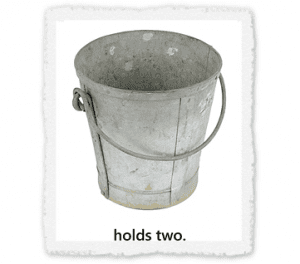
- I learned recently that this is one of the columns read periodically by another grief and loss group in town. Like meeting with grieving parents, that I could be a resource for these amazing people is hard to believe. (May 2013)
When I was a boy, my friend Mike and I rode our bikes up the street to see another friend named Clifton. I’ll never forget the scene: Clifton’s sister came running out of the house screaming “He’s dead! He’s dead!” Clifton was riding his dirt bike when he crashed and suffered a fatal head injury. I did not know what to say. As a matter of fact, I never spoke to anyone about it.
All of us face these situations. Someone dies and we don’t know what to say. A friend loses a loved one and we’re afraid of saying the wrong thing – so we don’t say anything.
But people who are grieving need us. They need our friendship. When they are ready to be around people, there are things we can do as friends to be supportive. Here are some suggestions for what you can say (and avoid saying) when you have a friend who is grieving:
Try and avoid clichés. “Heaven needed another angel” or “It was God’s will” might be true, but I’ve found that most grieving people don’t need theology. And even the most faithful people may believe “She’s in a better place,” but the emotions get the upper hand. The best place for deceased, especially for those who lost a younger loved one, is alive, well and nearby.
The loss of a child presents even greater challenges. I have heard well-meaning people say to a grieving parent, “Thank goodness you have other children.” I appreciate the sentiment, but no grieving parent I know can replace one child for another.
Another thing to avoid is rushing grief. Each person grieves in a unique way and in a unique timeframe. It is natural to want your friend to feel better (for them and for you), but they need to grieve at their own pace. Try and avoid comments like “Are you still sad about that?” or “You’ll recover soon.” In some cases, people never fully ‘recover’ from the loss of a loved one. And your grieving friend may never return to who they were before their loss.
Do not sweep the loss under the rug. Know that your friend is always thinking about their loss, so do not worry that you will cause them to remember. It’s all they think about. And they are in that excruciating place between never wanting to forget their dead loved one and how painful it is to remember. It is not your job to ‘fix’ the grieving person. It is not your job to cheer them up or somehow make their grief go away – as much as we’d like for it to go away.
So what can we do? Here are some suggestions. First, you may feel uncomfortable or awkward speaking to your friend about their loss. That is completely understandable. Death and love and grief are too profound for any of us to understand completely. I have done many funerals and spoken with many grieving people and I always feel sad and unable to say the perfect words.
Second, you may not find any words that adequately express how you feel. And you can say that. “I don’t know what to say, but I’m here for you. Call me anytime if you need to talk or just want someone to be with you.”
Third, if you are concerned that your friend might have an emotional response to your words of comfort, find a private place to express your sympathy.
Fourth, a simple hug or hand on the shoulder can speak volumes. And “I’m so sorry” is always meaningful. You can also say, “I’m so sorry about (say the person’s name)” and even say something about why that person was special to you. Those who are grieving, even if it brings tears, always appreciate hearing something wonderful about their loved one.
Finally, if you ask “How are you?” make sure you mean it. Look them in the eye and be willing to hear what they have to say. If they say “I’m okay” or “Fine” you might even ask, “How are you really doing?” And be prepared for their expressions of anguish and grief and even anger. What many grieving people need is someone willing to crawl ‘into the bucket’ with them with empathy and understanding. Scripture says “Rejoice with those who rejoice; mourn with those who mourn.” That is the mark of a true friend.

Recent Comments